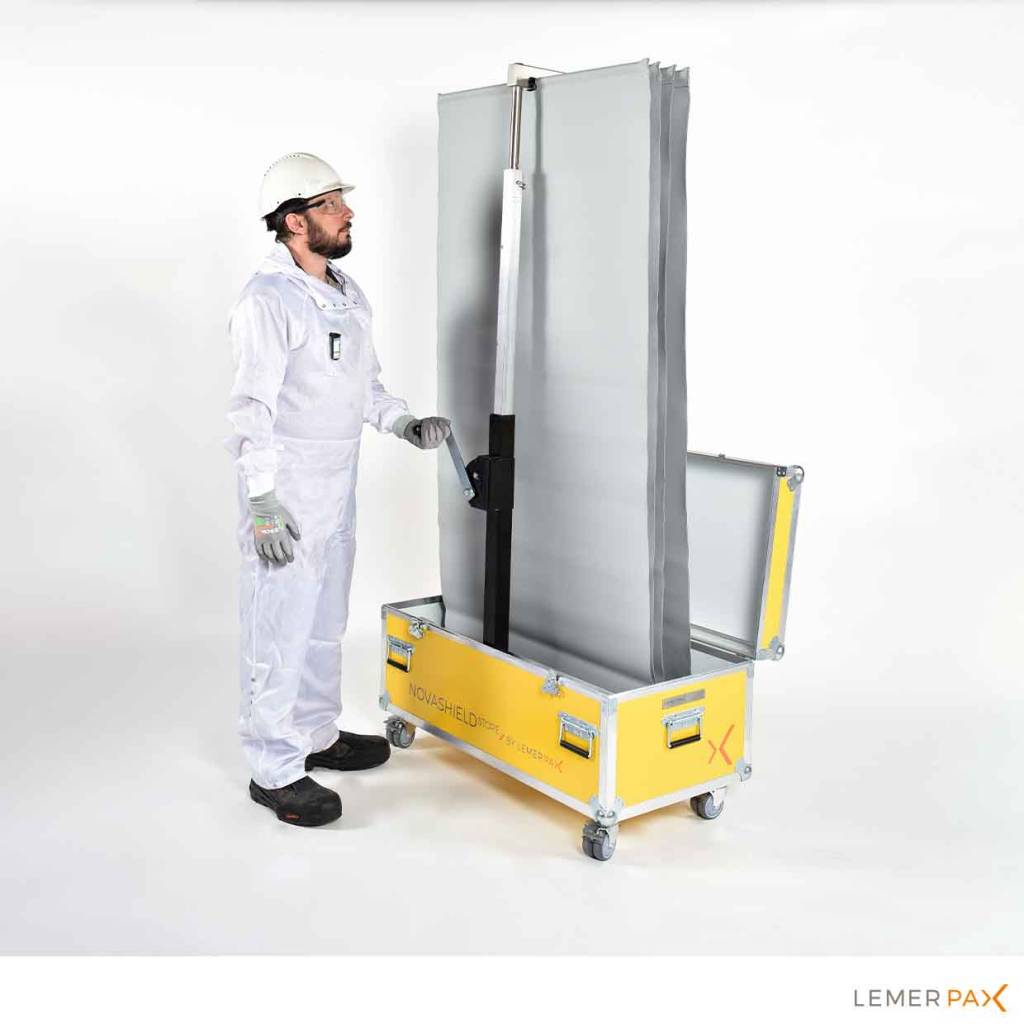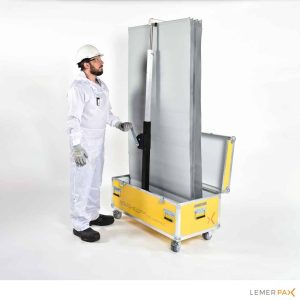Radiation Shielding Glass: Advanced Protection for Medical and Industrial Safety

Radiation Shielding Glass: Advanced Protection for Medical and Industrial Safety
Radiation shielding glass is an essential protective material used in medical and industrial environments where exposure to ionizing radiation is a concern. Whether in hospitals, research laboratories, or nuclear facilities, this specialized glass helps safeguard personnel and patients from the harmful effects of radiation. In this article, we explore the properties, applications, and benefits of radiation shielding glass, highlighting its vital role in radiation safety.
What Is Radiation Shielding Glass?
Radiation shielding glass, also known as lead glass or X-ray shielding glass, is a type of protective glazing designed to attenuate ionizing radiation. It is primarily composed of lead oxide, which enhances its ability to block high-energy photons, including X-rays and gamma rays. The lead content in this glass varies depending on the required level of protection, with common lead equivalencies ranging from 0.5 mm to over 3.0 mm.
This specialized glass offers high visibility and clarity while providing significant radiation attenuation, making it an optimal choice for protective barriers in medical imaging rooms, laboratories, and industrial radiation environments.
Key Features of Radiation Shielding Glass
Radiation shielding glass is engineered to provide optimal protection without compromising on visibility and durability. Its key features include:
- High Lead Content: The lead oxide content effectively absorbs radiation, minimizing exposure risks.
- Optical Clarity: Designed for transparency, allowing clear visibility without distortion.
- Durability: Resistant to scratches and environmental influences with proper handling.
- Various Thickness Options: Available in different thicknesses to meet specific radiation protection needs.
- Compatibility with Other Shielding Materials: Can be integrated with lead-lined walls, doors, and windows for comprehensive shielding.
Applications of Radiation Shielding Glass
Radiation shielding glass is widely used across several industries to ensure the safety of workers and patients. The most common applications include:
Medical Facilities
Medical settings, particularly radiology and diagnostic imaging centers, rely on radiation shielding glass to protect healthcare workers and patients from radiation exposure. It is frequently used in:
- X-ray rooms
- CT scan rooms
- MRI suites that use ionizing contrast agents
- Fluoroscopy and interventional radiology rooms
Installed in control room windows and viewing panels, this glass offers a balance of safety and visibility, ensuring that medical professionals can observe procedures without exposure risk.
Industrial and Nuclear Applications
Beyond medical use, radiation shielding glass is crucial in industries where radiation is prevalent, such as:
- Nuclear power plants
- Particle accelerator facilities
- Non-destructive material testing areas
- Radiopharmaceutical manufacturing environments
Employees in these sectors can safely operate in radiation-active zones while being protected by shielding glass barriers.
Benefits of Using Radiation Shielding Glass
The installation of radiation shielding glass offers several advantages, including:
- Enhanced Protection: Reduces occupational radiation exposure and complies with health safety regulations.
- Visual Monitoring: Allows for direct observation of radiation-intensive procedures without putting operators at risk.
- Customizable Options: Available in different sizes and lead equivalencies to meet diverse industry needs.
- Long-Lasting Performance: With proper maintenance, this glass retains its shielding properties for an extended period.
Choosing the Right Radiation Shielding Glass
Selecting the appropriate radiation shielding glass depends on several factors, including:
- The level of radiation exposure in the environment
- The thickness and lead equivalency required
- Compatibility with other shielding components
- The size and design of installation areas
Consulting with radiation protection specialists ensures optimal shielding performance tailored to specific applications.
Installation and Maintenance Considerations
Proper installation and maintenance of radiation shielding glass are critical to ensuring its effectiveness over time. Here are some key points to consider:
- Installation: The glass should be installed by professionals, ensuring that all edges are properly sealed to prevent radiation leakage. Lead-lined frames may be used to enhance protection.
- Cleaning and Care: To avoid damaging the lead-containing surface, use non-abrasive cleaners and soft cloths. Avoid using harsh chemicals that may degrade the glass over time.
- Inspection and Replacement: Periodic inspections are necessary to check for any scratches, cracks, or deterioration that could affect radiation attenuation performance.
Advancements in Radiation Shielding Technology
Recent advancements in radiation shielding technology have led to the development of more efficient and environmentally friendly alternatives. Some innovations include:
- Non-Lead Shielding Options: Researchers are developing eco-friendly, lead-free glass alternatives with similar protective properties.
- Enhanced Coatings: Modern coatings can improve the durability and clarity of radiation shielding glass without compromising protection.
- Modular Mobile Shielding: Flexible solutions such as radiation protection mobile barriers offer enhanced adaptability in dynamic environments.
These advances contribute to improved safety, sustainability, and practicality across various industries.
The Future of Radiation Shielding Glass
As technological and medical advancements continue, the need for effective radiation protection solutions remains critical. The development of smarter, lighter, and more efficient shielding glass will play a key role in ensuring safety in healthcare, research, and industrial settings.
Investing in high-quality radiation shielding glass is a proactive approach to safeguarding professionals and patients from the dangers of ionizing radiation. By selecting the right specifications and implementing proper maintenance practices, organizations can enhance safety standards and operational efficiency in radiation-prone environments.





